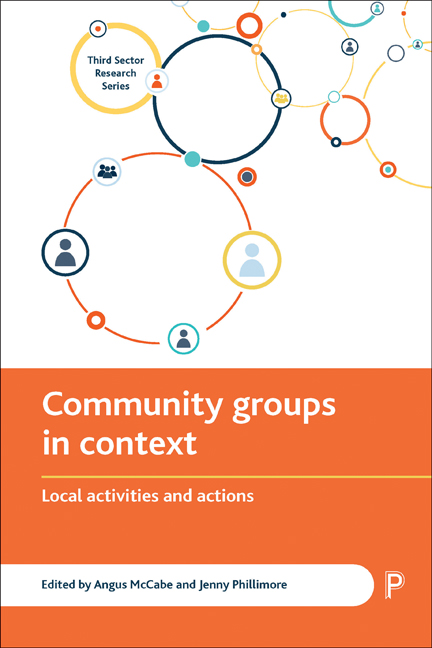Book contents
- Frontmatter
- Contents
- List of tables and figures
- Foreword
- Series editor’s foreword
- Acknowledgements
- Notes on contributors
- Introduction Why get below the radar? The importance of understanding community groups and activities
- Part One Scoping and mapping community actions and activities
- Part Two Community groups and activities in context
- Part Three Under-explored radars
- Part Four Thinking about voice, learning and emotion below the radar
- Index
Series editor’s foreword
Published online by Cambridge University Press: 05 April 2022
- Frontmatter
- Contents
- List of tables and figures
- Foreword
- Series editor’s foreword
- Acknowledgements
- Notes on contributors
- Introduction Why get below the radar? The importance of understanding community groups and activities
- Part One Scoping and mapping community actions and activities
- Part Two Community groups and activities in context
- Part Three Under-explored radars
- Part Four Thinking about voice, learning and emotion below the radar
- Index
Summary
Third sector scholarship has often been criticised for a focus on highly-visible, quantifiable, and mappable elements of the organisational universe, such as the distribution of voluntary organisations, or levels of formal volunteering through those organisations. Yet over forty years ago scholars were warning of the regressive consequences of such approaches. Cartographic and scientific metaphors pervade the critiques of David Horton Smith and others, with their emphasis on lost continents, dark matter and so forth. It is crucial that a series such as this one does not have a focus solely on formalised and regulated third sector activities and Angus McCabe and Jenny Phillimore's edited collection on Community groups in context gives expression to that aspiration. It draws on extensive work in the Third Sector Research Centre both by the Centre's research staff and by its associates.
Although there are discussions of the challenges of definition and measurement in this field, the authors would agree that objective representation and cartographic exactitude are impossibilities in this area. Panoptical attempts at quantification have been attempted on numerous occasions, with variable results, and often for cathartic rather than academic reasons. It is to be hoped that serious funders don't continue to pour resources into such exercises – at least if they believe that the aim is to arrive at an authoritative estimate of the scale of community-led, grassroots activity. They won't find it – or, more accurately, they won't find any agreed estimate. They will certainly find, however, a kaleidoscope of initiative which raises many important questions about the nature of the third sector.
This book will appeal to those engaged in or having a stake in grassroots community activities (for example funders, academics, policymakers, practitioners and activists) for four key reasons.
Firstly, it offers unique insights into the identity of grassroots community organisations: what it is that makes them distinctive, enables them to provide a voice that is authentic and recognised as legitimate?
Secondly, a classic theoretical rationale for third sector activity is the identification and meeting of social needs – whether these be those of minority groups who lack leverage through the democratic process, or emerging issues as yet unacknowledged through formal welfare structures.
- Type
- Chapter
- Information
- Community Groups in ContextLocal Activities and Actions, pp. vii - viiiPublisher: Bristol University PressPrint publication year: 2017



